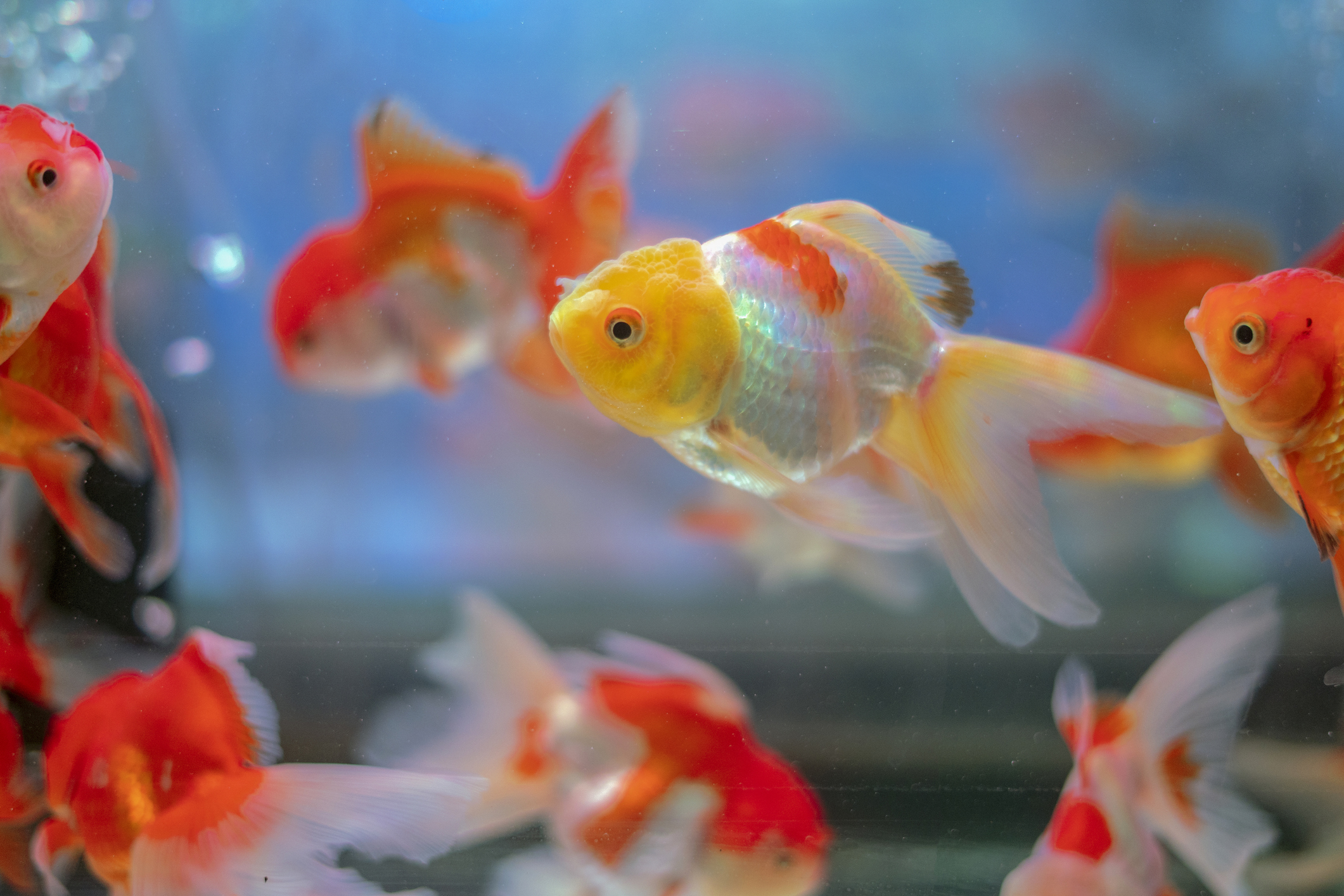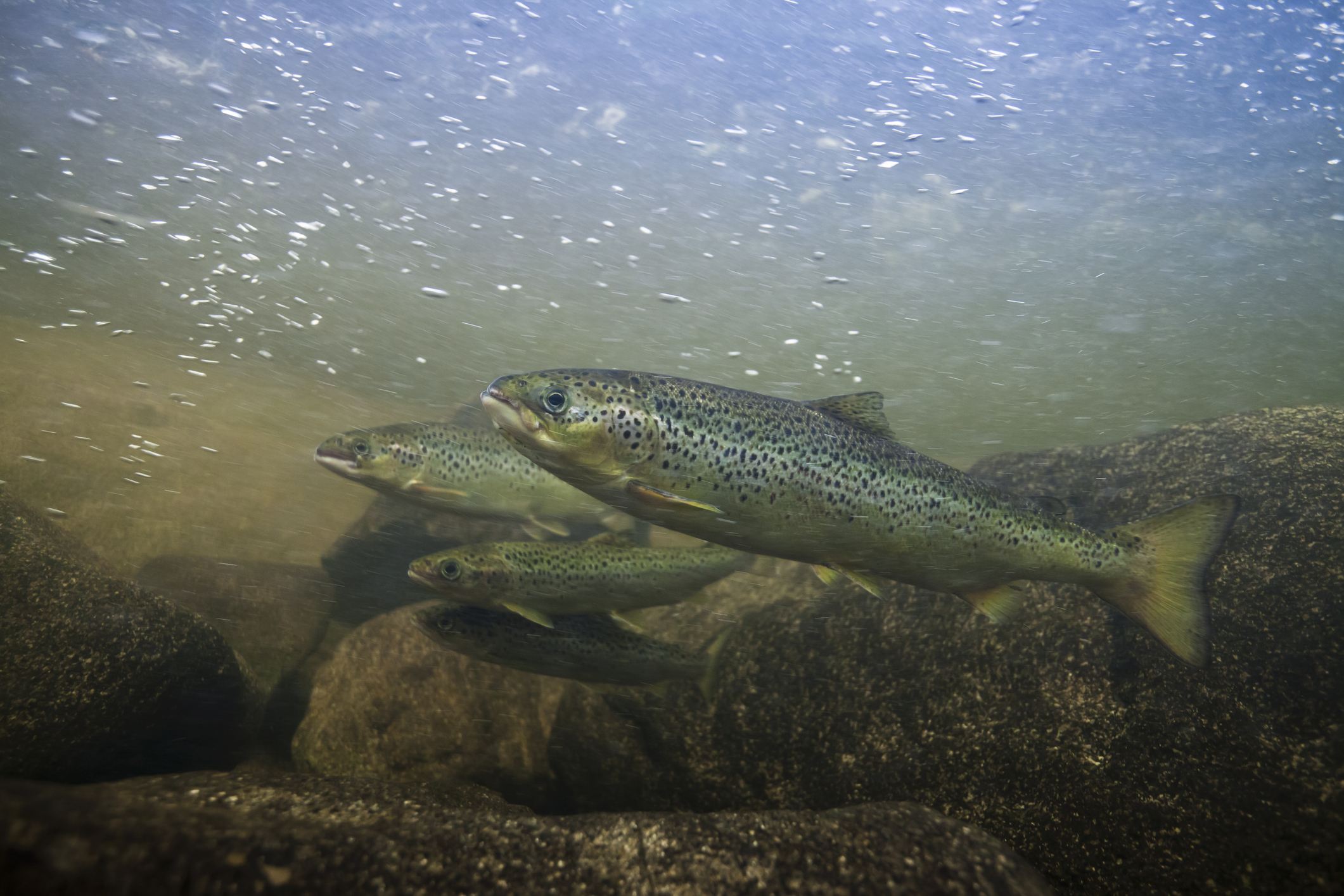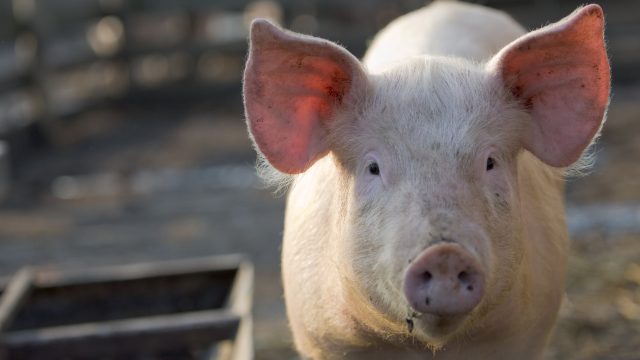
Clarifying that Fish are “Animals,” Connecticut Bans the Use of Goldfish as Carnival Prizes
By Nicole Pallotta, PhD, Senior Policy Program Manager
Contents
Current statute states that no person can use an animal, reptile, or bird as a prize at a carnival or fair. Reptile and bird are singled out, despite the number one prize being a (gold)fish. This provision adds the word fish to the statute.1
Intro
With an amendment to its consumer protection law, Connecticut has made it illegal to use fish as prizes for carnivals and other games.2 Awarding animals as prizes was already prohibited in the state, but fish were not included in the relevant statute. Contributing to the ambiguity was the fact that “animals, reptiles, and birds” were named, but not fish — leading some to believe that the law did not apply to them.
The new law, which became effective in October 2024, removes this ambiguity and clarifies that fish and reptiles (who were previously only named in part of the statute) are included in the definition of “animal.” Violation of the law is a class D misdemeanor.
Although Representative Tony Scott, who sponsored the amendment, characterized it as a “technical change” — merely clarifying statutorily what most would assume: that fish are animals3 — this change is an important advance for goldfish, who make up the majority of animals given away as prizes at carnivals and fairs.
Cruelty at the Carnival
Goldfish are routinely mistreated during the process of being used as prizes.4 They are stored and transported in tiny plastic bags and given to people who often lack the knowledge and equipment needed to properly care for a goldfish — when they make it to a home at all. Many goldfish die before they even leave the carnival grounds, subject to both routine neglect and deliberate abuse. As noted by a representative of the Royal Society for the Protection of Animals in Wales, which is supporting a similar ban in that country:
Animal ownership is a big responsibility, and goldfish shouldn’t be acquired via a spur-of-the-moment game. Goldfish are easily stressed and very often fish that are won as prizes suffer miserably from shock, oxygen starvation or die from changes in water temperature, and many may die before their new owners can even get them home.
Additionally, goldfish awarded as prizes have been stomped on, thrown from atop Ferris wheels, and in some cases swallowed. Rep. Scott attributed what he called “the fish bill” to his teen daughter, who was distressed to witness such acts of cruelty toward goldfish at a carnival in Connecticut. Her advocacy included testifying in support of the bill two years after she first brought the issue to her father and asked him to do something to help the goldfish. He said:
I am pleased the House passed this as part of an omnibus bill. My daughter, Lauren, came to the state Capitol last year to testify on this proposal. She was passionate about the General Assembly taking action after witnessing bad things happening to these animals. Current statute states that no person can use an animal, reptile, or bird as a prize at a carnival or fair. Reptile and bird are singled out, despite the number one prize being a fish.

What is an Animal?
Rep. Scott referred to this amendment as a technical change because it codifies what common sense suggests: that “fish” should be included in the definition of “animal.” Yet as the need for this statutory change shows, common sense does not always prevail when it comes to legal definitions of “animal.” Sometimes the most exploited animals are left uncovered by laws ostensibly intended to protect them. For example, the federal AWA excludes fish, rats, and mice, who comprise the vast majority of animals used in research.
While the question “what is an animal?” is relatively straightforward from a biological perspective, the answer is less so within the legal system. Previous Animal Law Updates have highlighted this issue, particularly with regard to aquatic animals, who are often excluded from animal cruelty laws based on idiosyncratic statutory definitions of “animal.”5 Fish are also commonly excluded based on human use. For example, animals killed for food — of whom aquatic animals are the greatest number in the US6 — are often left uncovered due to exemptions for “standard agricultural practices,” which are troublingly defined by the industry itself.
State cruelty laws can also contain other exemptions,7 and the fundamental question of “what is an animal” is one they often answer. Despite a scientific consensus they are sentient,8 fish are often expressly excluded from cruelty laws or not mentioned at all. Not being mentioned does not mean fish are not covered. But it leaves the question of whether they “count” as animals open to interpretation (and exclusion) by courts. The definition of “animal” matters in other statutory contexts as well, such as Connecticut’s consumer protection law that covers the use of animals as prizes.
What About Fishing?
An amusement park owner critical of Wales’s proposed ban told the BBC:
I have concessionaires who make their living from it and if they’re going to ban giving goldfish on an amusement park, they should also look into the cruelness in the fishing industry, that makes more sense to me than looking at a goldfish as a prize.
He makes an important point: the commercial fishing industry is also inherently cruel.9 This industry not only kills fishes in great numbers but also unintended animals caught as “by-catch.”10 Fortunately, as a society and as individuals, we have the ability to address more than one form of unnecessary animal suffering.
The suffering of fishes matters, whether in the fishing industry or the carnival and fair industry, and each type of exploitation is rooted in animal objectification.11 Spontaneous giveaways of goldfish to carnival-goers unprepared to provide species-appropriate care for an animal whose average lifespan is 10-15 years are harmful because they literally harm goldfish, but also because they are a blatant example of objectification — treating animals like disposable objects rather than sentient beings who are capable of a wide range of positive and negative experiences. This thread runs through all forms of animal exploitation.

Conclusion
Connecticut’s new law is a positive advance for animals because it eliminates a specific and flagrantly frivolous use of animals for entertainment.12 The practice of giving away live animals as prizes is inherently cruel and contributes to their objectification in society and law. Whether fish were deliberately excluded or their absence was an oversight, this amendment clarifies that under Connecticut’s law prohibiting the use of live animals as prizes, the animals who are most commonly affected by this practice are also protected. It further highlights the importance of legal definitions of “animal,” and underscores how the ways we categorize animals based on societal use affects their treatment and protection under the law.
Further Reading
- Tartamella, Theresa. “Local Lawmaker’s Daughter Inspires Goldfish Giveaway Ban.” Easton Courier. October 3, 2024.
- Pallotta, Nicole and David B. Rosengard, hosts. “When Animals Aren’t.” Animal Amicus [podcast]. Animal Legal Defense Fund. November 22, 2023.
- Hessler, Kathy and Amy P. Wilson. “Tipping the Scales: How Law and Policy Fail Aquatic Animals.” Center for Animal Law Studies, Lewis & Clark Law School. January 27, 2021.
- Levenda, Kelly, Kathy Hessler, and Becky Jenkins. “Aquatic Animal Law: Overview, Aquaculture, and Alternatives 2019” [webinar]. Animal Legal Defense Fund. June 14, 2019.
- Pallotta, Nicole. “Animal Cruelty Charges Dropped Because Fish Are Not ‘Animals’ Under North Carolina Law.” Animal Legal Defense Fund. June 11, 2019.
References
- https://www.cthousegop.com/scott/rep-scott-touts-house-passage-of-bill-to-prohibit-animals-as-prizes/
- Public Act No. 24-142 (Sec. 89-90) (pp.139-40)
- In his testimony supporting the bill, Rep. Scott remarked on the curious wording that included reptiles and birds but not fish, noting: “Why ‘reptile or bird’ was added after ‘animal,’ I don’t really know. They’re all animals right? So if you have ‘animal,’ you’d think it would cover that.”
- See: https://fishfeel.org/wp-content/uploads/Goldfish_giveaway_factsheet.pdf
- See: “Animal Cruelty Charges Dropped Because Fish Are Not ‘Animals’ Under North Carolina Law;” “Switzerland Bans Practice of Boiling Lobsters Alive Without Stunning First;” and “Sydney Seafood Store Convicted of Animal Cruelty for Inhumane Treatment of Lobsters.”
- See: “How Many Fishes Are Slaughtered Annually?” (https://faunalytics.org/number-of-farmed-fish-slaughtered-yearly/); “Estimating global numbers of farmed fishes killed for food annually from 1990 to 2019” (https://pmc.ncbi.nlm.nih.gov/articles/PMC10936281/).
- “Typical exceptions include regulated hunting and fishing, animal husbandry and food animal production, bona fide medical research using animals, and pest extermination, among others.” (Animal Legal & Historical Center, State Animal Cruelty Laws.)
- See: Lambert et al. 2022. “A Kettle of Fish: A Review of the Scientific Literature for Evidence of Fish Sentience.” Animals. 12(9):1182. (Concluding, “our findings highlight the capacity of fish to feel important subjective states, such as pain, depression, and anxiety, and positive evidence of the capacity of fish to experience these states.”)
- See: Hessler, Kathy, Becky Jenkins, and Kelly Levenda. “Cruelty to Human and Nonhuman Animals in the Wild-Caught Fishing Industry.” Sustainable Development Law and Policy Brief. Vol. 18, No. 1, 2017.
- https://www.fisheries.noaa.gov/insight/understanding-bycatch
- See: “Animals Are Not Things.” Animal Amicus Podcast. Animal Legal Defense Fund. November 15, 2023.
- While intended to eliminate this practice, as with all animal protection laws, success will depend on enforcement.
Sign Up!
Join the Animal Legal Defense Fund's email list to stay up to date on lawsuits, legislation, and regulations affecting animals.
Focus Area
How We Work
Related
-
Court Rules Texas Food Label Censorship Law is Unconstitutional
The law imposed unclear and vague standards on plant-based meat producers that violate the First AmendmentJanuary 29, 2026 Press Release -
State Animal Protection Laws Ranked: Oregon is #1, North Dakota #50
20th edition of ALDF state and territory ranking report highlights major advancements & trends in animal protection across the U.S.January 27, 2026 News -
Over 30 Organizations Urge USDA to Limit Federal Support for Manure Digesters
Hundreds of millions of dollars intended to cut energy costs have been funneled to costly manure digesters, benefitting the largest factory farmsJanuary 15, 2026 News




